Photos by Pete Muller
Women in DRC are experiencing increasing levels of sexual violence, often as a result of conflict, but support networks are being established and the perpetrators are beginning to be brought to justice, including ranking officers of the army
A multimedia exhibition at the Ending Sexual Violence in Conflict summit this week showed the important work of grassroots women activists in eastern Democratic Republic of the Congo in responding to sexual violence in conflict.
It was produced by the International Campaign to Stop Rape and Gender Violence in Conflict. The award-winning photographer Pete Muller and filmmakers travelled to DRC to capture the work of the activists in pictures and video. The exhibit will be available online in September.
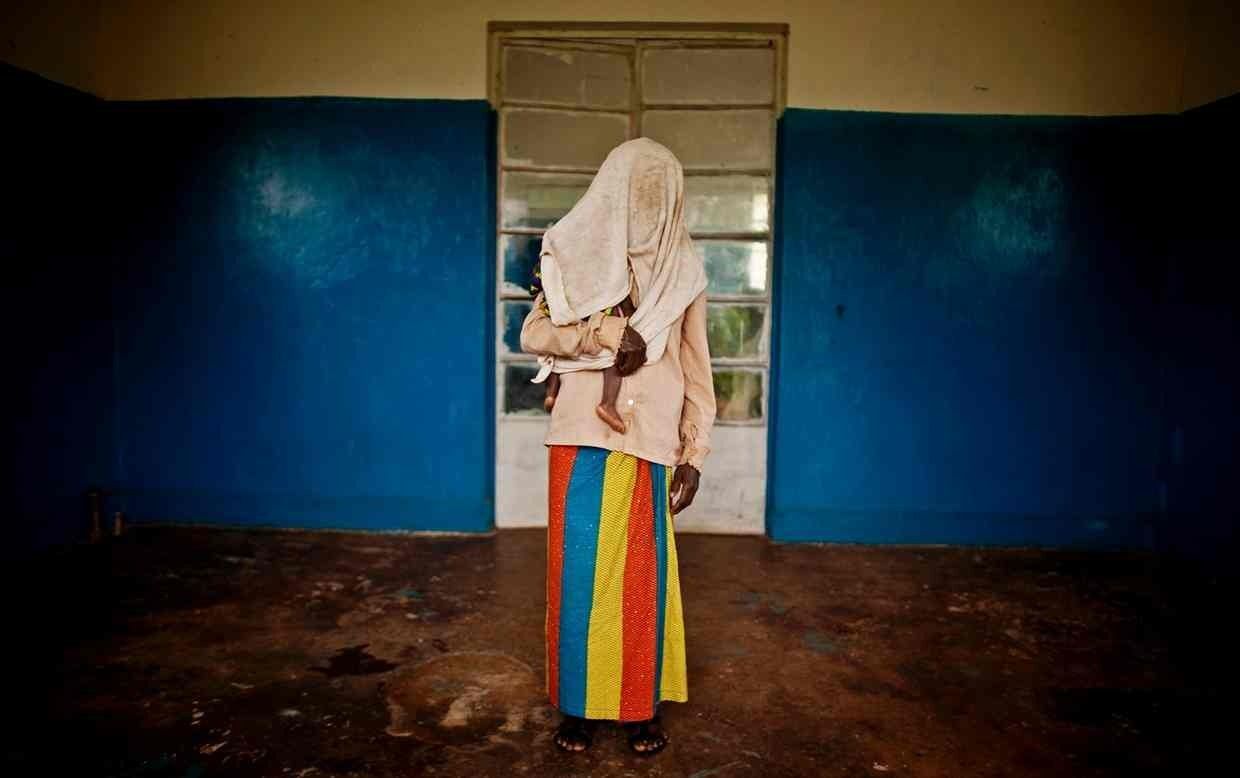
A survivor of a mass rape campaign in the town of Fizi, DRC. Her identity has been concealed for security reasons and because rape carries strong social stigma. She was among nearly 50 women who were raped by Congolese soldiers on the night of 1 January 2011. Eleven soldiers from the accused unit were tried in a military tribunal for crimes against humanity and rape.
In discussing her decision to testify against the soldiers who raped her, another survivor said: 'Yes, it's dangerous, but everything is dangerous. If we go to the fields to get food, we get raped. If we go to the river to get water, we get raped. Now we get raped in our own homes'.
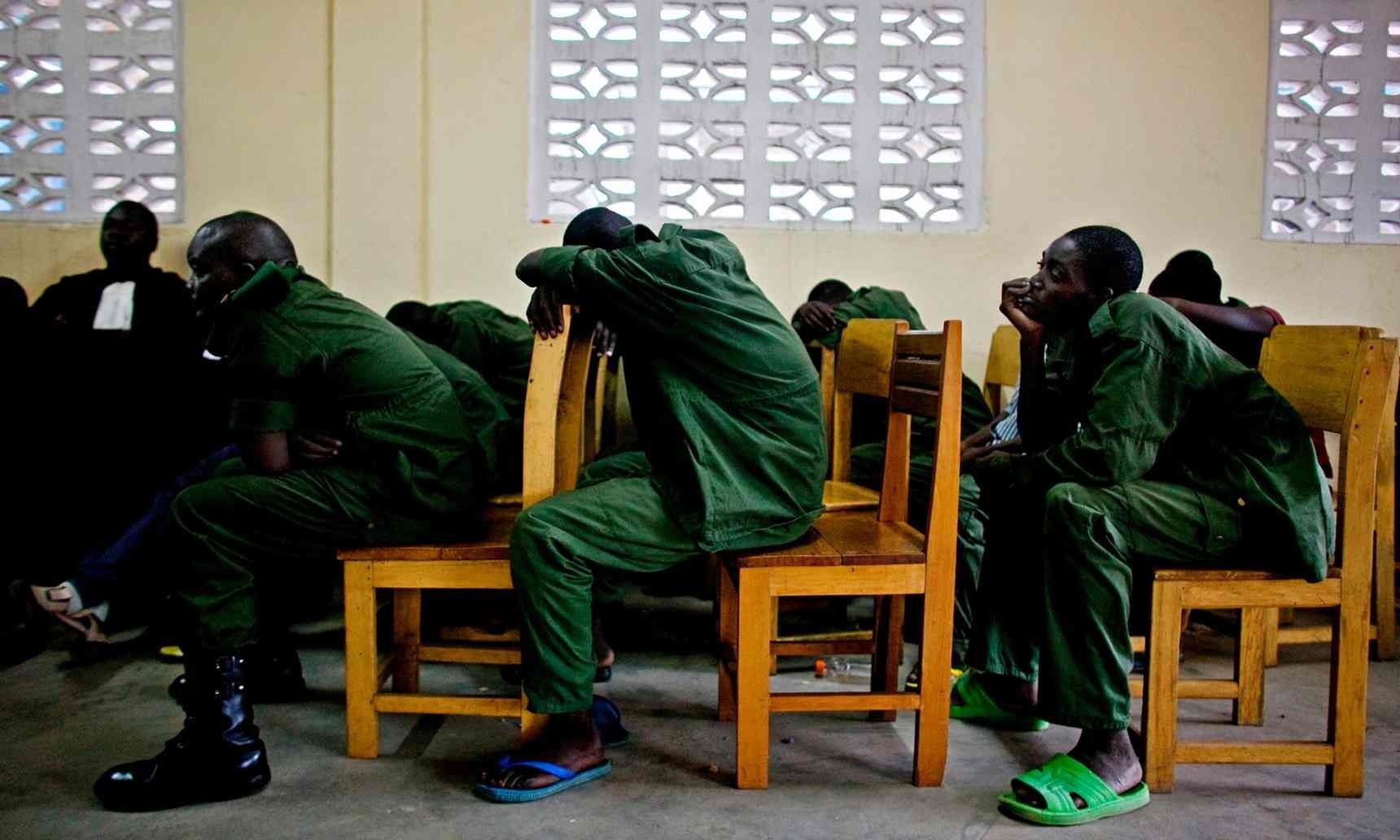
The soldiers accused of rape and crimes against humanity slouch in their chairs in the hot, makeshift courtroom during the military tribunal in Baraka in February 2011.
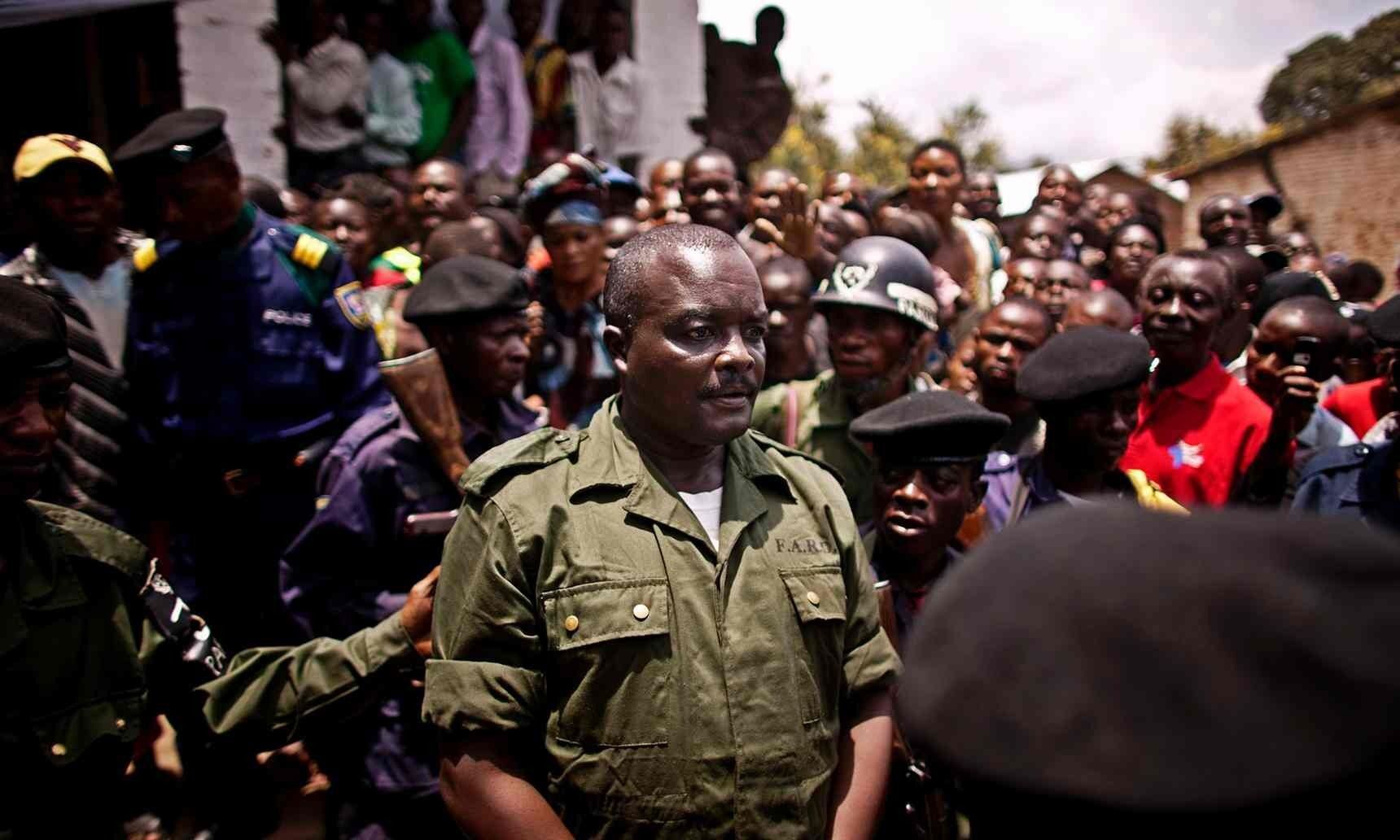
Colonel Kebibi Mutware leaves the military tribunal in Baraka, in February 2011, after being convicted of crimes against humanity. Ten of the 11 accused solders were found guilty of crimes against humanity, including Mutware, who was sentenced to 20 years in prison. Kebibi is the highest ranking Congolese army officer to have been convicted of crimes against humanity.
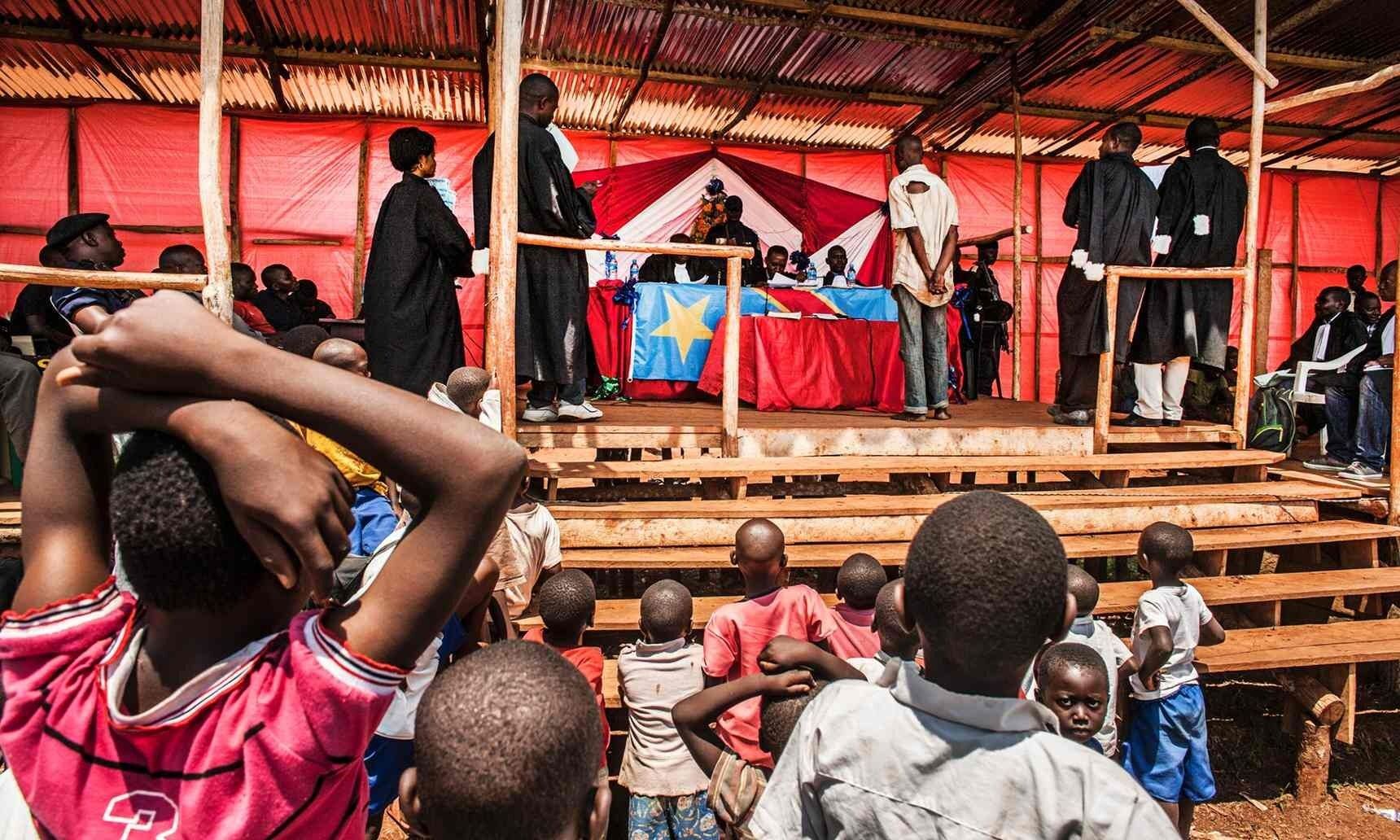
Children watch a rape trial that is open to the public, in the village of Mangina in DRC's eastern Beni territory in March 2014.
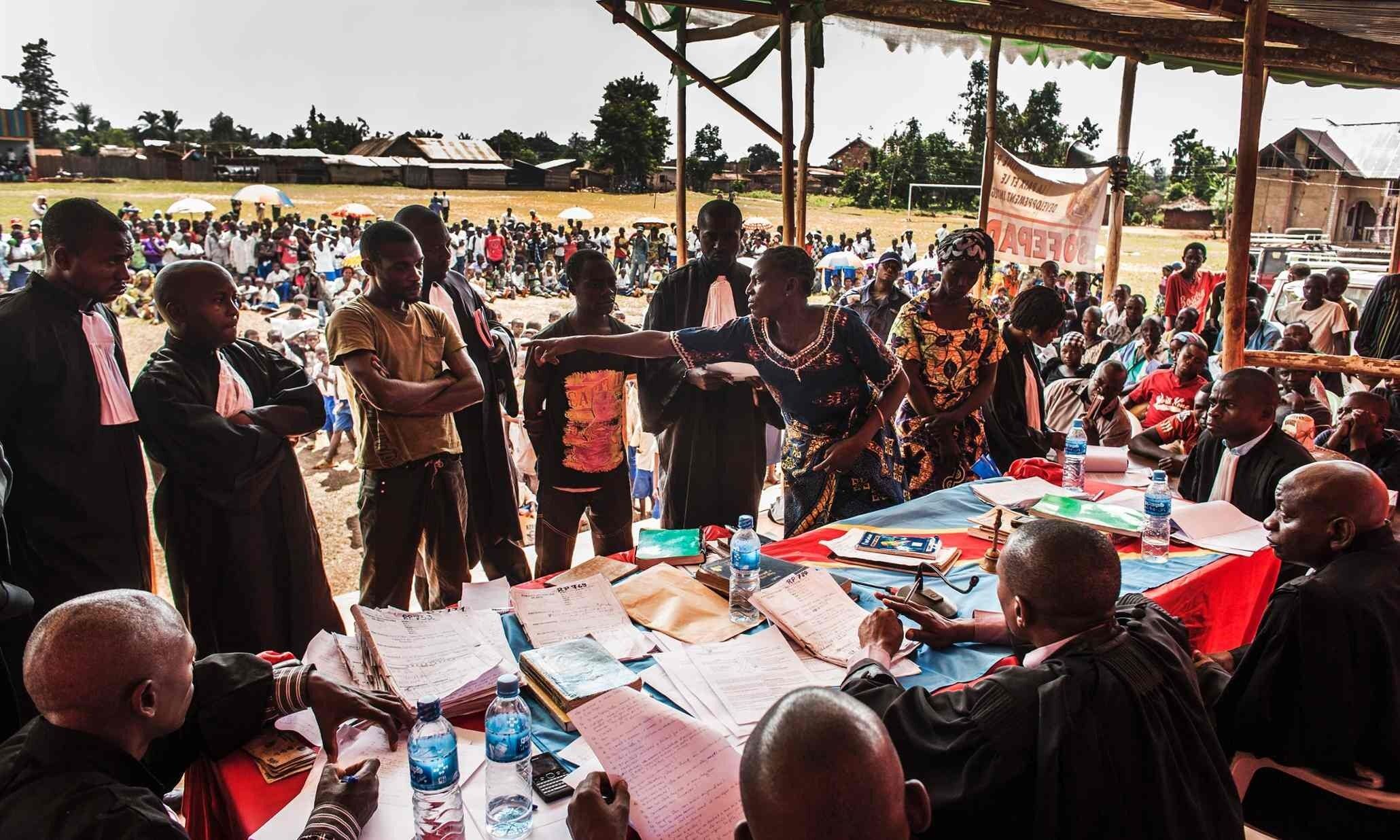
During the tribunal in Mangina, a woman points to a man she accuses of raping her.
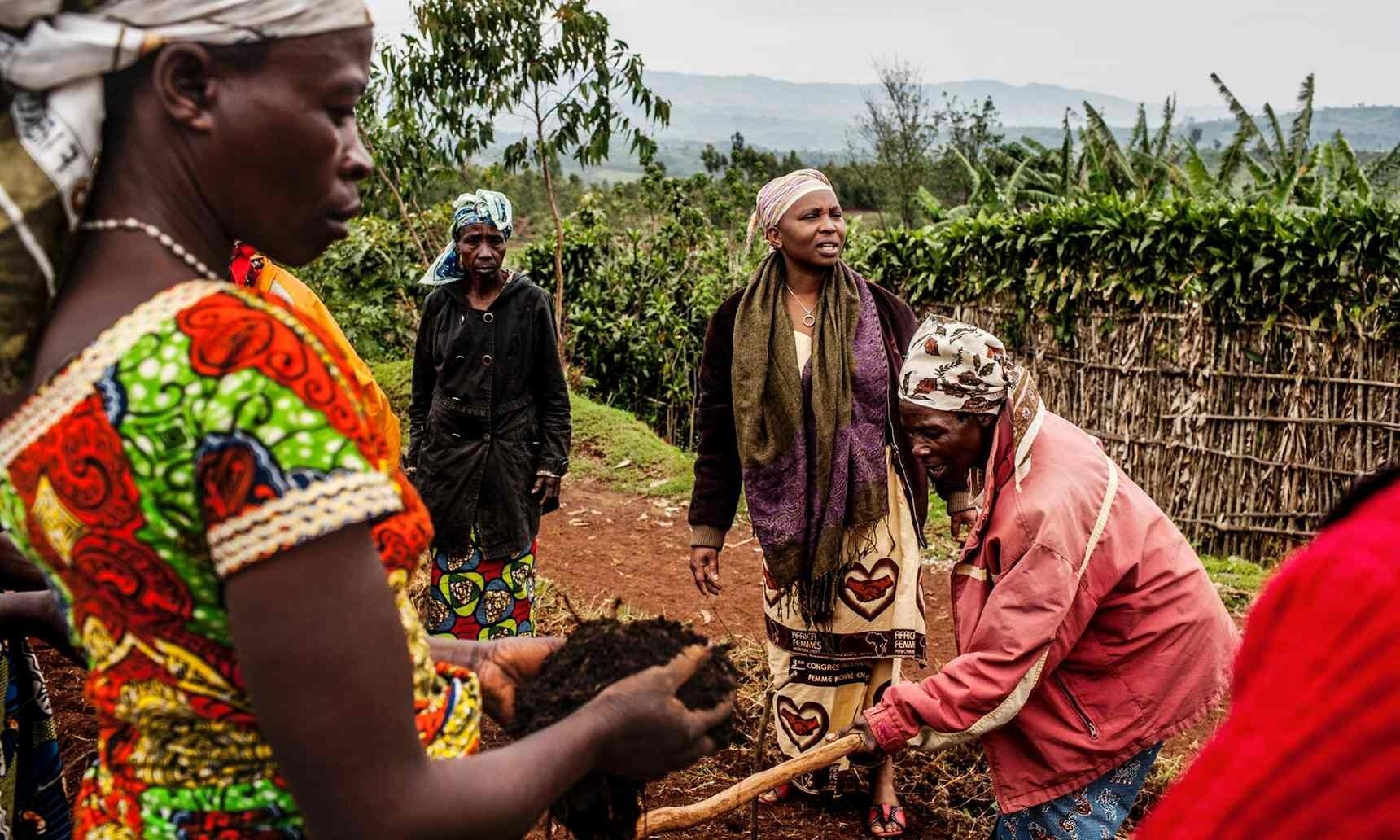
Adeline Nsimire (third left), director of the organisation SAMWAKI, works with a group of sexual violence survivors as they plant crops in Walungu outside Bukavu, near the border with Rwanda in February this year.
SAMWAKI (Sauti ya Mwanamke Kijijini), means 'A Voice to Rural Women' in Swahili. It provides access to information and training for rural women through community radio. The group has formed listeners’ clubs, allowing women to broaden their knowledge and capacity on everything from health to farming―and provides women a safe space for sharing their experiences of sexual violence.
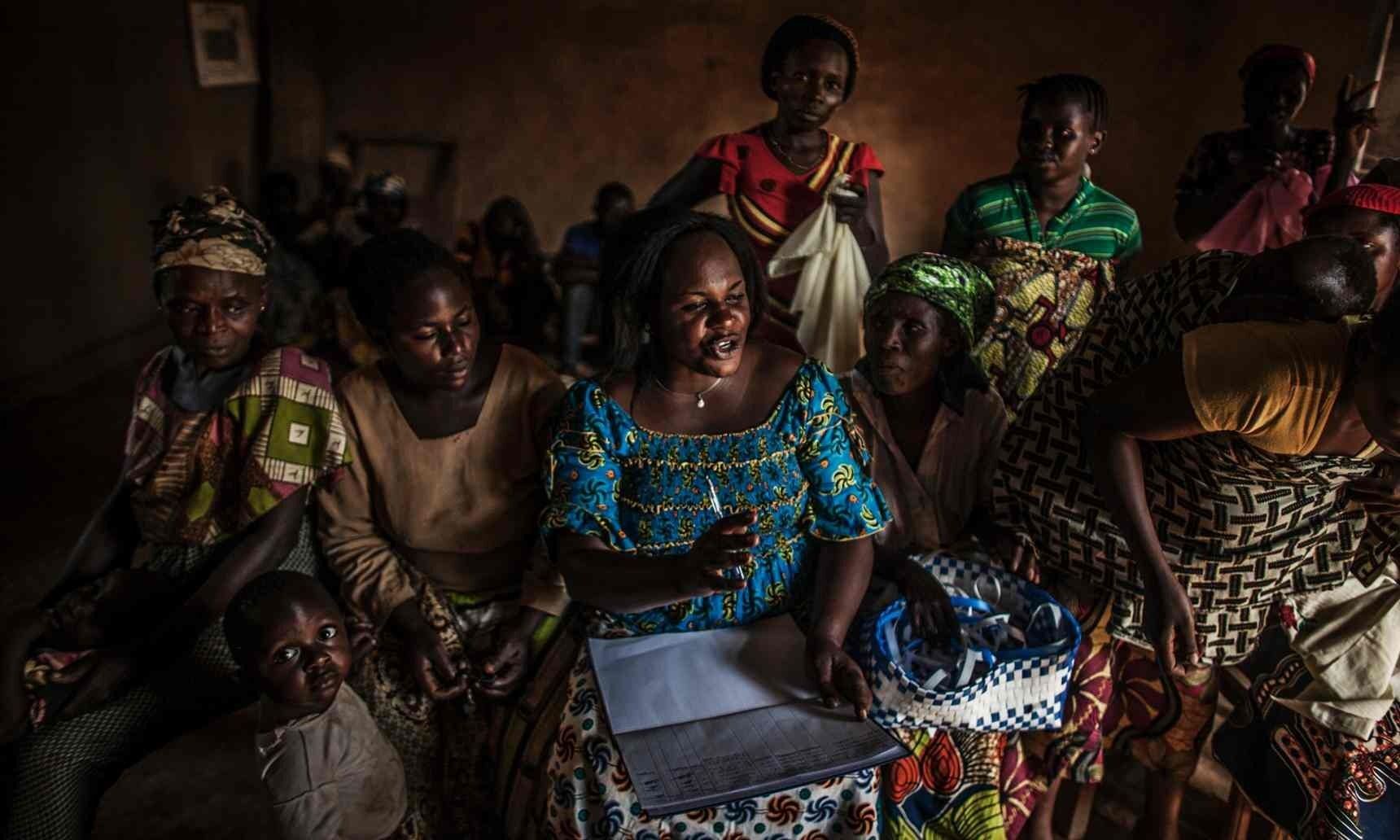
Kahindo Siherya Alphonsine (centre), an activist from SOFEPADI, meets with women inside a makeshift sewing studio in the village of Mangango, in North Kivu, in March 2014.
In many cases, survivors of rape are stigmatised and rejected by their families ― leaving them unable to care for their children. SOFEPADI initiated sewing workshops as part of its support for survivors of sexual violence, providing women with a positive space to learn a new trade while creating a new community.
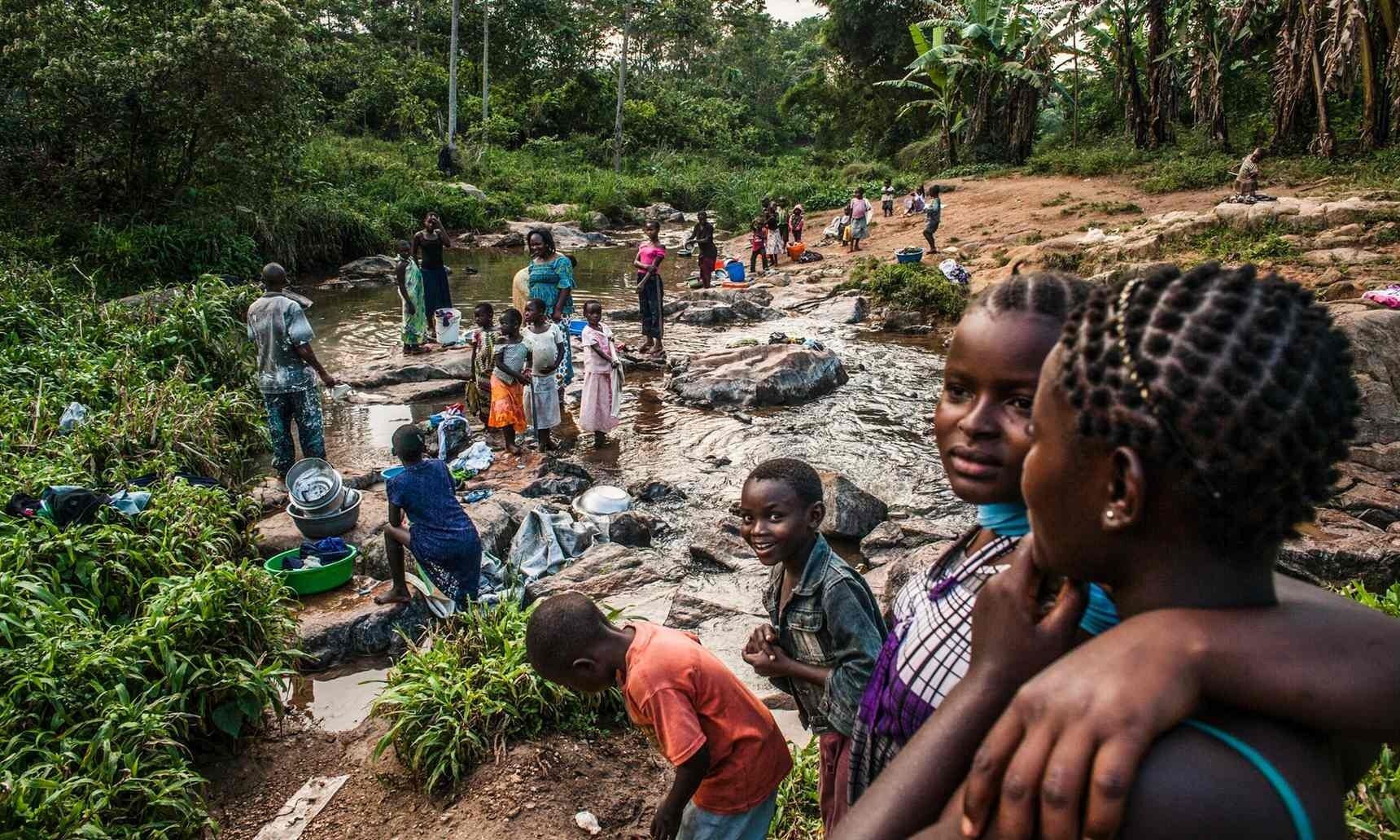
Young girls gather to bathe and wash clothes at a river near Beni. Women and girls often have to travel long distances to collect water, and find themselves vulnerable to attack by rebels, soldiers or other armed men. This area of DRC's North Kivu province is the site of ongoing battles between Congolese forces and rebels, known as ADF-NALU. Many of the inhabitants in the region were displaced late last year due to the fighting, with local women's groups reporting an increase in sexual violence.
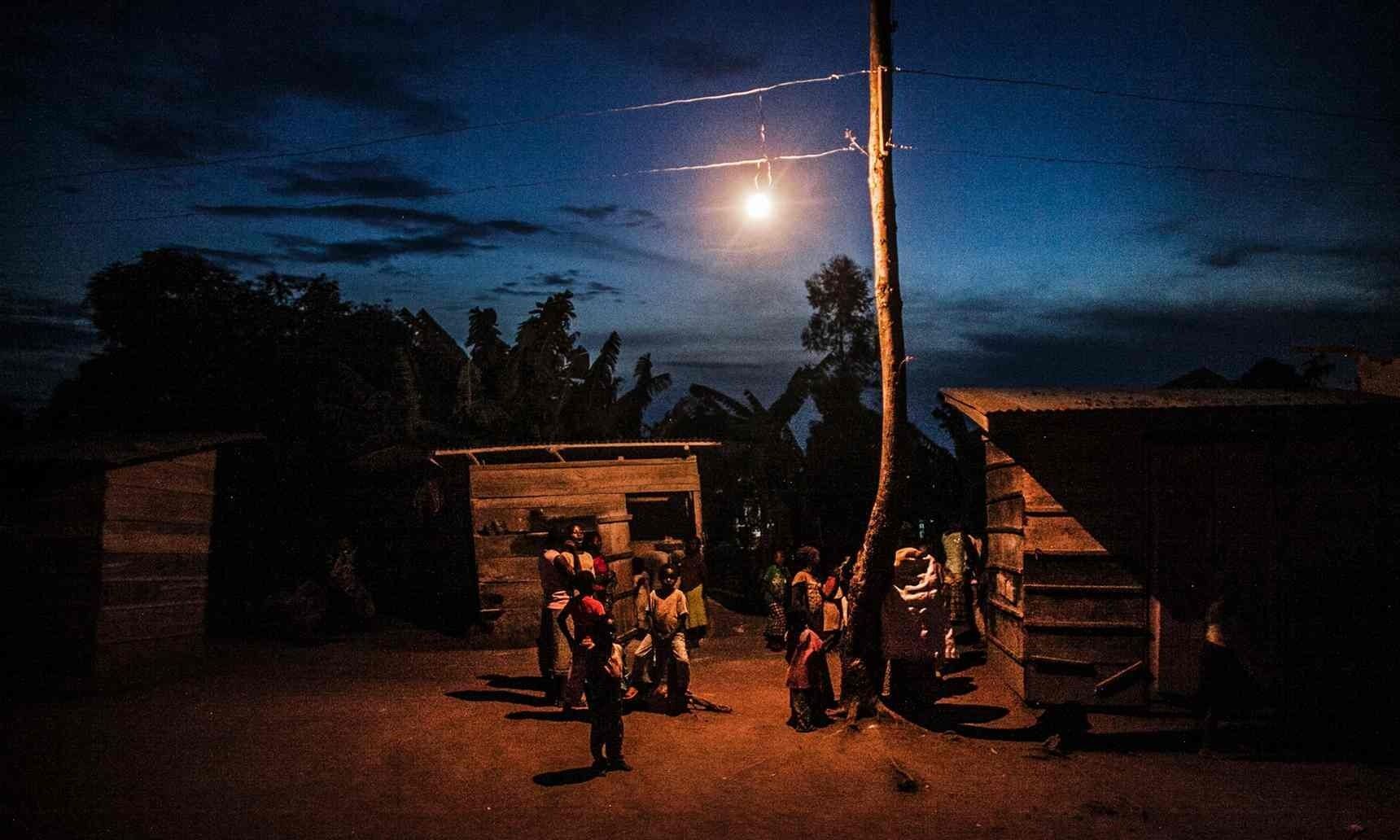
Women and children from Beni line up at a grinding mill at dusk. A 2010 report by Oxfam International and the Harvard Humanitarian Initiative found that rape perpetrated by civilians had dramatically increased and there was a 'normalisation' of sexual violence within communities.
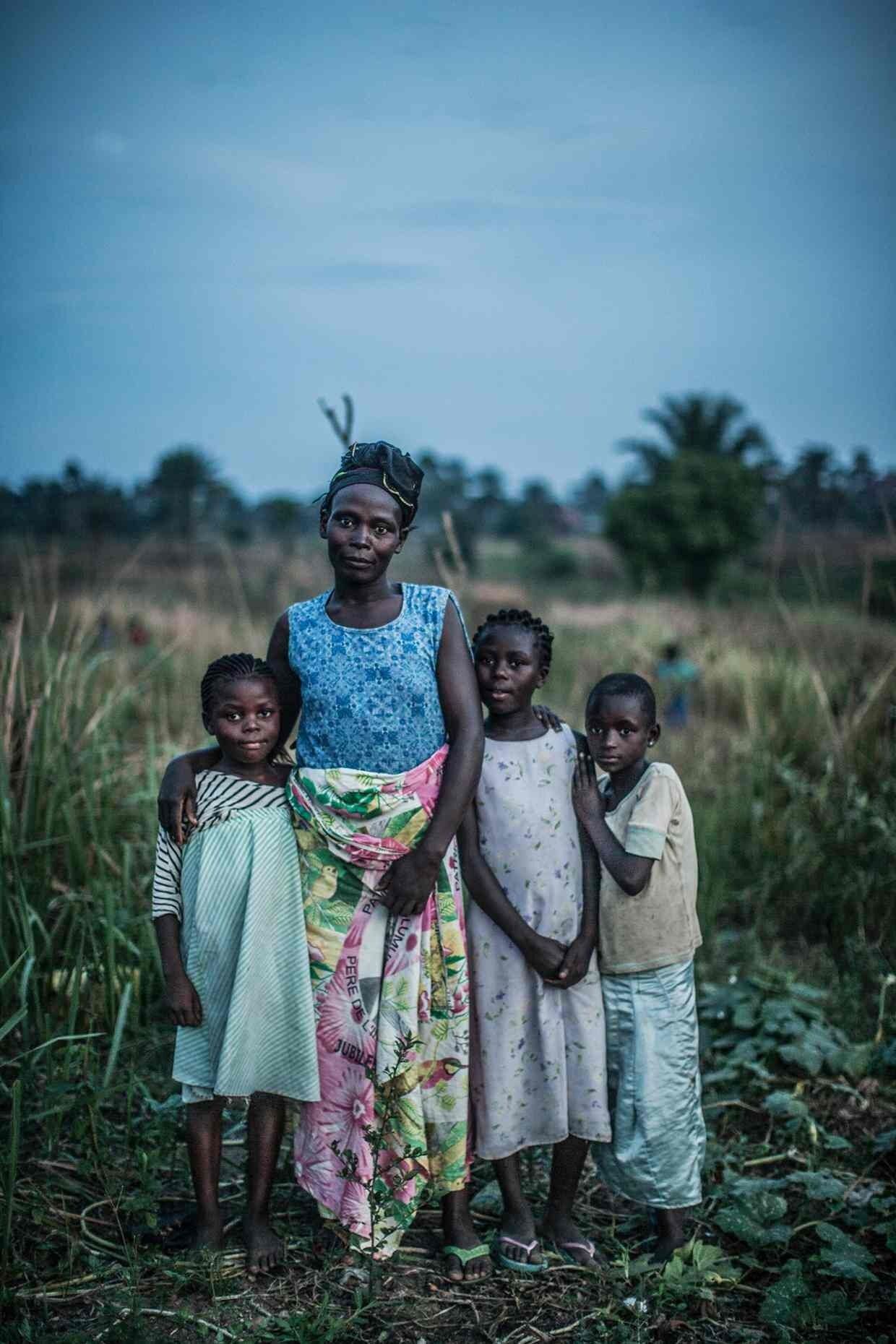
A woman survivor and her family outside their family home in Beni, in March 2014. The young daughter (second right) is also a survivor of rape. SOFEPADI has provided them with a range of support services.
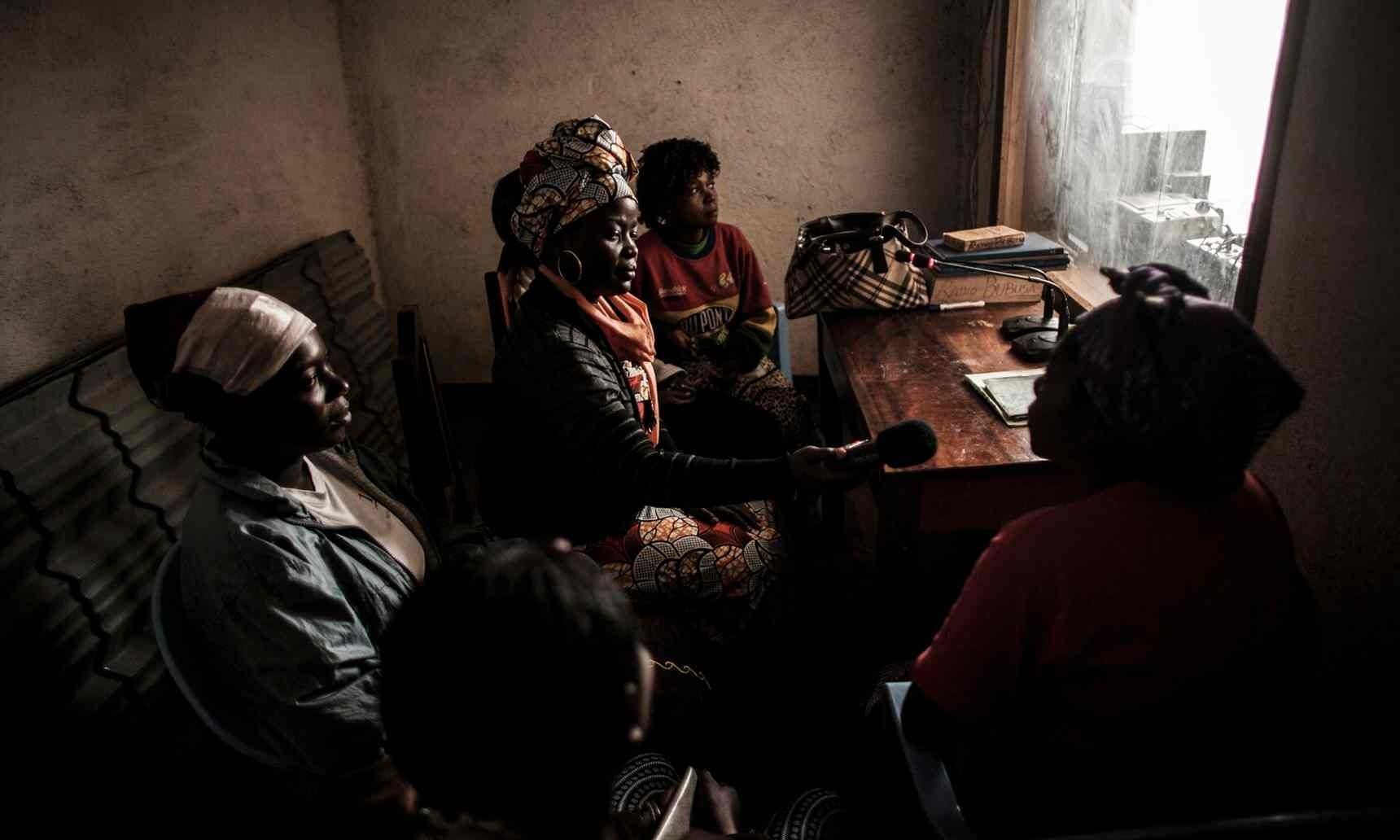
Chouchou Namegabe conducts journalism training at a community centre in Walungu, outside Bukavu, in February 2014. A young journalist, Namegabe was inspired to provide opportunities for other women to be a voice for survivors of sexual violence and founded AFEM (L'Association des Femmes des Médias du Sud Kivu). The group works to increase women's representation in the media.
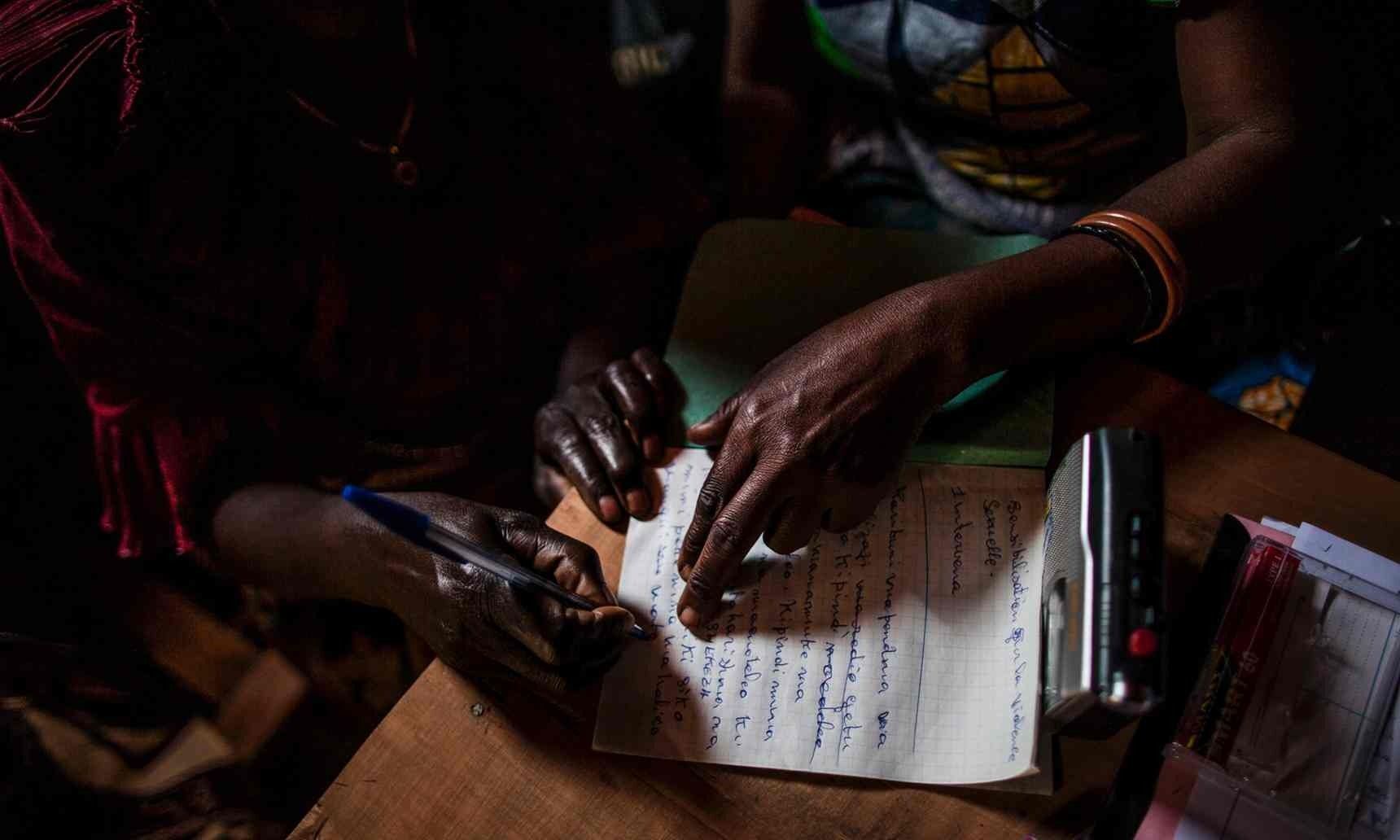
Women journalists prepare the script for a radio programme, which aired on International Women's Day this year, at a community centre in Walungu. Community radio is widely used throughout eastern DRC to share information about women’s health, rights and violence ― breaking the stigma associated with rape.
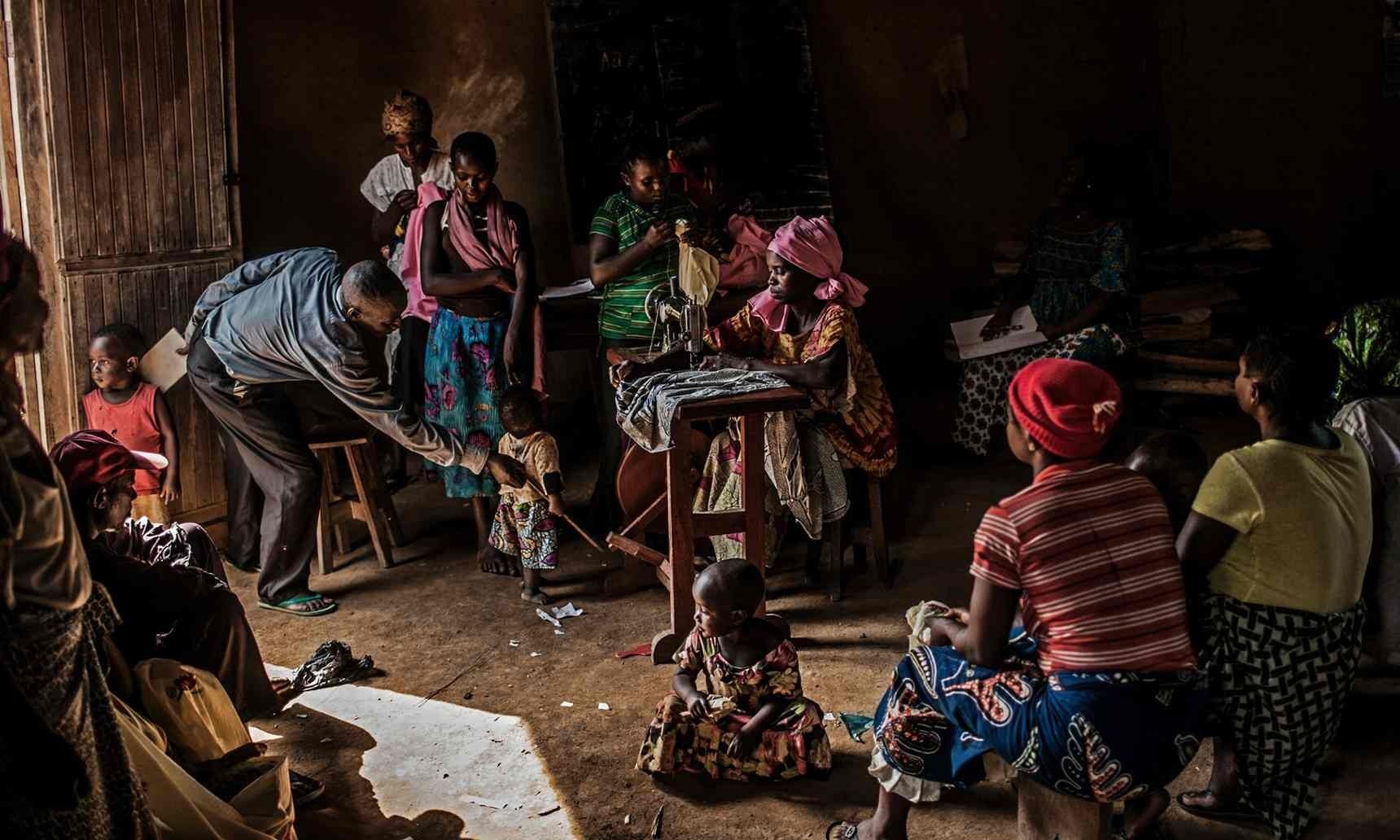
Residents gather inside a sewing studio in Mangango, in March 2014. SOFEPADI initiated the sewing workshops to provide psychosocial and economic support in an area of North Kivu where sexual violence had been on the rise due to armed conflict between the Congolese forces and rebels.
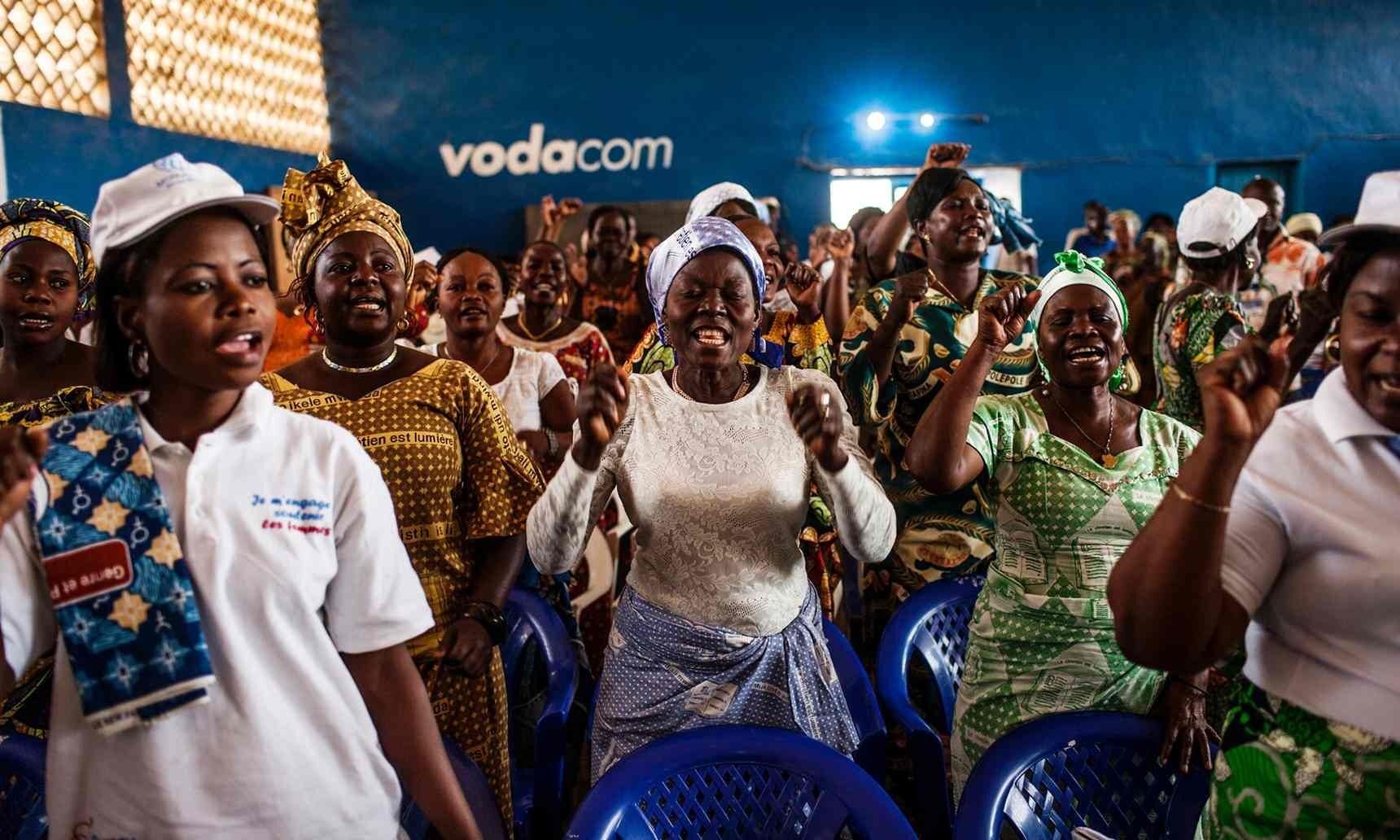
Women gather in Bunia, in DRC's north-eastern Orientale Province, in February 2014 at a meeting of women's representatives from the local and provincial governments, police and justice sector and grassroots organisations. The meeting aims to make women's voices heard by the country's authorities.
See article from source:
Taking action against sexual violence in the Democratic Republic of the Congo – in pictures
